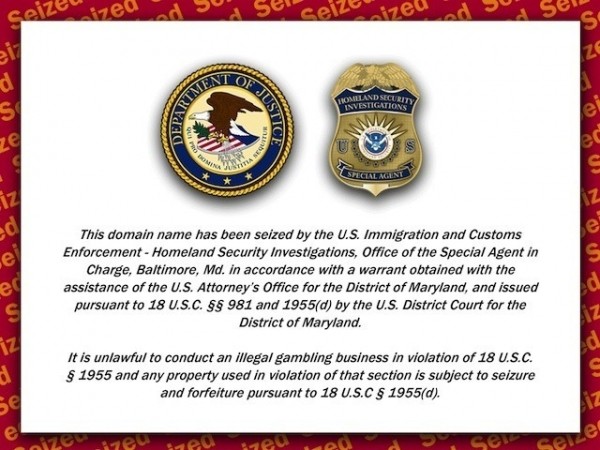The Department of Homeland Security has seized the domain of online gambling website bodog.com after the US Attorney's Office for the District of Maryland unsealed a two-part indictment Monday.
It is the result of data and intelligence gathered during an investigation by the FBI and IRS dating back as far as 2006, which also included the assistance of a former employee. Four persons working for the entertainment company stand accused of conducting an online sports betting business in violation of the Illegal Gambling Business Act as well as engaging in a money laundering conspiracy.
Interestingly, bodog.com is run by Canadian billionaire Calvin Ayre and the domain was purchased through a Canadian registrar. None of the defendants are believed to be US citizens. US authorities never approached the Canadian registrar to enforce the seizure, instead they used .com and .net domain operator VeriSign to alter the "glue" records and take down the website, according to the seizure warrant (PDF) paperwork.

By sidestepping the Canadian registrar, VeriSign sends a worrying message to anyone else with a .com or .net domain, especially if authorities consider these TLDs to be American property. It also raises the question: why do we need SOPA again?
According to the indictment, the accused moved money from several accounts in Canada, England, Malta and Switzerland to the US to pay for advertising firms, including $42 million to an undisclosed media reseller in the US between 2005 and 2008. It's also said that the defendants paid out $100 million in winnings to US gamblers, despite the strict laws regarding certain gambling in the US.
"Sports betting is illegal in Maryland, and federal law prohibits bookmakers from flouting that law simply because they are located outside the country," US attorney Rod Rosenstein said in a statement.
Ayre responded to the allegations on his blog, calling the case an "abuse of the US criminal justice system for the commercial gain of large US corporations." He continued, "It is clear that the online gaming industry is legal under international law and in the case of these documents it is also clear that the rule of law was not allowed to slow down a rush to try to win the war of public opinion."
All four could face extradition to the US if caught by authorities, and if convicted, they could face up to 20 years in prison for the money laundering count as well as five years for operating an illegal gambling business.
